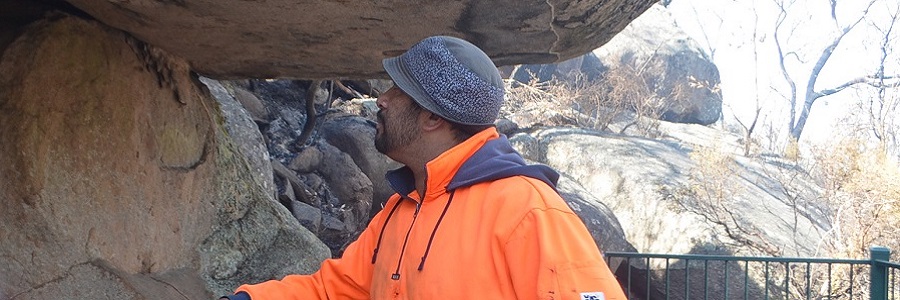Projects

Forests
“It’s like a library … the river is a quiet space. Those trees are like books, full of stories of the place, it’s a place of knowledge.”
NSW forests provide significant and diverse connections to country for Aboriginal peoples. Supporting Aboriginal values is a dedicated outcome under the NSW Forest Monitoring and Improvement Program, with the aim of better understanding Aboriginal values and knowledge involved in forest management and how this can be strengthened in the future.
The work is being guided by an interagency Aboriginal values working group involving key Aboriginal staff and agencies involved in NSW forest management.
The current project is undertaking assessments of Aboriginal values and renewal in NSW forests post-wildfires 2019-20. The project is facilitated by Firesticks Alliance who are coordinating a series of case studies across different fire-affected forest types in NSW. Three case studies were initiated in 2020 and are being undertaken by local Aboriginal organisations as part of Aboriginal-led, country-based assessments and renewal activities.
The Banbai Rangers are leading one of these case studies on the Wattleridge Indigenous Protected Area and other tenures in northern NSW after the 2019/20 wildfires. Learn about key forest values on their lands and how to better protect these as part of forest and fire management practices by watching their story on the case study.
Water
“the river is our memory – we walk along it and remember our history and our ancestors by looking at the marks and places.”
“The river has a responsibility not just to us, but to plants and animals. It has a right to connect up to other waters. It’s the bloodline of this country. It’s like us: if our blood stops flowing, we get sick. The water, if that flow stops, we all become sick.”
Our review of water sharing plans assess the extent to which the cultural objectives of plans are being achieved in water sources across NSW. Water sharing plans commonly include objectives to:
- protect Native Title rights
- protect, preserve, maintain and enhance the Aboriginal, cultural and heritage values of water sources.
From previous reviews, we have consistently found that:
- Aboriginal water related values are not appropriately identified or protected in the plans, particularly groundwater values
- Native Title rights need to be better recognised, protected and supported in water sharing plans
- Aboriginal engagement in water planning has been inadequate, particularly in coastal areas
- Aboriginal water licences are overly complex and restrictive in the way Aboriginal people can access and use water
- Key barriers to Aboriginal water rights and interests are systemic and require statewide legislative, policy and practice change.
We seek input from key Aboriginal stakeholders at a state and community level to provide their perspectives and experiences of issues related to water access, rights and uses. More details on our reviews and opportunities to provide feedback can be found on the water sharing plan reviews page.
- Submission to the South Australian Royal Commission on the Murray–Darling Basin, 13 February 2019
- Quoted in Allam, L. and Earl, C. (2019) ‘For centuries the rivers sustained Aboriginal culture. Now they are dry, elders’ despair’ The Guardian, 22 January. Available at: www.theguardian.com/australia-news/2019/jan/22/murray-darling-river-aboriginal-culture-dry-elders-despair-walgett
- Quoted in Allam, L. and Earl, C. (2019) ‘For centuries the rivers sustained Aboriginal culture. Now they are dry, elders’ despair’. The Guardian, 22 January. Available at: www.theguardian.com/australia-news/2019/jan/22/murray-darling-river-aboriginal-culture-dry-elders-despair-walgett Image: Courtesy of Banbai Rangers (Tremane Patterson at the Kukra rock art site in the Wattleridge Indigenous Protected Area)
